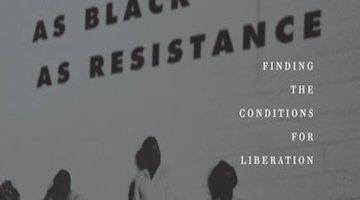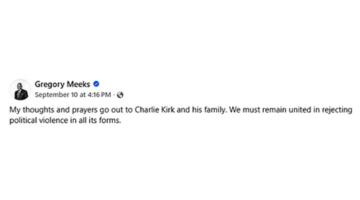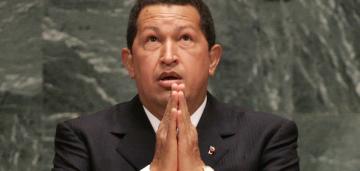It takes many voices from a world of disciplines to tell the story of Paul Robeson, the supreme talent ad intellect that the US State attempted to erase from history.
“Over more than forty years, Robeson establishing a layered and compelling tradition that others have tapped into.”
In this series, we ask acclaimed authors to answer five questions about their book. This week’s featured author is Shana Redmond. Redmond is Professor of Musicology and African American Studies at the University of California, Los Angeles. Her book is Everything Man: The Form and Function of Paul Robeson.
Roberto Sirvent: How can your book help BAR readers understand the current political and social climate?
Shana Redmond: This book is invested in telling the story of how our comrades and innovators return to us and the strategies that make that possible, which is a current and ongoing story of struggle and resilience. Social movement collectives, intellectuals, organizers, and artists all participate in the active recuperation of Robeson and his memory. The work of the book is to understand that process; how does it happen and why does it happen when it does? His trace is everywhere and it builds in scale: live performance, recordings, visual art, the built environment, and so on. In that sense the stories told are always engaged with the present because it is the contemporary political moment that inspires and produces his return decades after his death. Knowing that this return defies not only death but also the efforts at disappearance by the state marks it as especially urgent. Black histories and traditions of struggle are constantly being interrogated and newly revealed and someone like Robeson brings the stakes of these continual searches to the fore. His archive is lush and multiple, which allows people to access and conspire with him in various ways. To know why Robeson is here, we have to know where and what we are, which requires study and confrontation with the character of our political present.
What do you hope activists and community organizers will take away from reading your book?
Part of the labor here is to show the variety of formats taken advantage of by organizers who seek to continue building on long genealogies of struggle. To know that we have art and music and sports and theater and poetry and seeds and the built environment at our disposal as we build new futures is a critical reminder of our power and motivation as we continue to dream. These are some of the techniques that Robeson and his communities employed in order to address and transform their political circumstances and they remain available to us today. Collectivizing our arts practices, performing in common places, and dreaming publicly are revolutionary acts. The knowledge and use of them is a charge to us all to study and teach more deeply and in more complicated ways. I hope that the book will not only offer information but will also incite new experiments in the thought and resistance of Black and working peoples.
We know readers will learn a lot from your book, but what do you hope readers will un-learn? In other words, is there a particular ideology you’re hoping to dismantle?
The biggest idea that I hope to dislodge or prove false is the belief in the adage “dead and gone.” Black and other people of color communities disprove this common sense daily but perhaps Everything Man will offer a reminder. We bring back our loved ones all of the time and we should take seriously the impact of those returns—they are often emotional and sometimes symbolic but they can also be material, meaning that those who come back to us insist that we think and live differently for the fact of their presence. The introduction of “antiphonal life” in the book is an effort to identify and theorize the ways in which music animates this effort. When we call people, there is a response and a relation that creates new possibilities. In a world in which we are radically vulnerable, it matters to know that we have other people who look out for us and who can provide information and motivation as we move forward.
Who are the intellectual heroes that inspire your work?
It’s an obvious shout out but, of course, Paul Robeson. His abilities and impact in the creation of thought is underappreciated. Beyond him, there’s a vast catalog of scholars and intellectuals (including musicians) who assist in this work to document and theorize Black arts and radicalisms and who create scholarship that is guided by people’s voices and commitments. There are really too many to name. Some of my most important mentors and guides, however, have passed on and, in the spirit of Everything Man, I want to acknowledge them as they are still with me/us, namely Clyde Woods, Cedric Robinson, and Rudolph Byrd.
In what way does your book help us imagine new worlds?
This book is committed to helping us think our lives in the future tense, which requires knowing our history and present in rigorous ways and dreaming through and beyond them. That takes work; we don’t invest enough in the uses of imagination, so I wanted to make that pursuit a distinguishing feature of the book. It was important to show people freedom dreaming. Paul is an exceptional example of this. He dreamt on a global scale and over more than forty years, establishing a layered and compelling tradition that others have tapped into. Seeing and hearing Gwendolyn Brooks, Pablo Neruda, Odetta, and others be inspired by and continue in those unique labors begins to model that future possibility. These examples are not only evidence documenting our histories of struggle but also, when read in detail and in combination, are a methodology toward liberation.
Roberto Sirvent is Professor of Political and Social Ethics at Hope International University in Fullerton, CA. He also serves as the Outreach and Mentoring Coordinator for the Political Theology Network. He is co-author, with fellow BAR contributor Danny Haiphong, of the new book, American Exceptionalism and American Innocence: A People’s History of Fake News—From the Revolutionary War to the War on Terror.
COMMENTS?
Please join the conversation on Black Agenda Report's Facebook page at http://facebook.com/blackagendareport
Or, you can comment by emailing us at comments@blackagendareport.com















